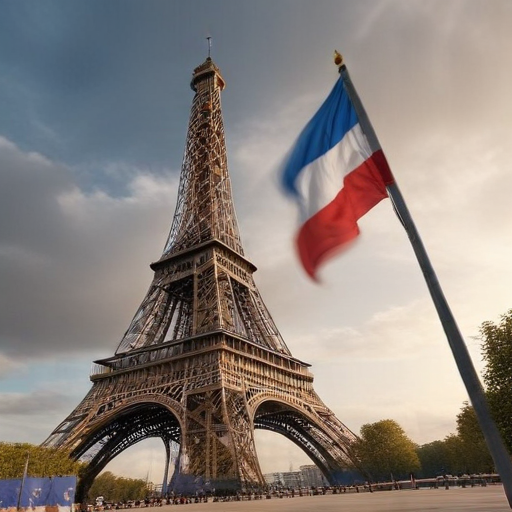President-elect Donald Trump received a warm reception from French President Emmanuel Macron during his recent visit to France, marked by ceremonial grandeur and significant discussions on pressing international issues. This visit, which is Trump’s first international trip since his election victory, coincides with the reopening of Notre Dame Cathedral, a pivotal cultural symbol that had been closed due to extensive damage from a fire in 2019.
During the visit, Trump and Macron sought to strengthen both bilateral ties and European support for Ukraine amid ongoing tensions with Russia. Their historic meeting at the Elysee Palace was enhanced by an unexpected trilateral discussion that included Ukraine’s President Volodymyr Zelenskyy. While the specific agenda for this meeting has not been disclosed, Trump’s past commitment to expedite peace negotiations in Ukraine suggests a focus on pivotal future arrangements.
Upon arrival at Paris’ Orly Airport, security was notably intensified, with over 20 French agents reinforcing Trump’s Secret Service detail due to the significance of the occasion. Macron openly showcased their rapport with gestures of camaraderie, and Trump expressed gratitude, emphasizing the “great relationship” they have established.
As the restoration of Notre Dame symbolized resilience and hope, Macron reflected on this achievement as a testament to cultural preservation. “The decision to rebuild Notre Dame was about our capacity to save, restore, sometimes reinvent what we are by preserving where we come from,” he stated, highlighting the rebuilding effort as a positive narrative of achievement.
Although past interactions between Trump and Macron saw ups and downs, this meeting indicates a renewed effort on Macron’s part to cultivate a rapport with the incoming U.S. president. While the meeting also marks the absence of President Biden, who was unable to attend due to scheduling conflicts, it reinforces France’s pivotal role in ongoing global affairs.
Looking forward, Trump’s diplomatic strategies combined with Macron’s leadership may pave the way for a more collaborative international approach, particularly regarding Ukraine and NATO relations. The vision for a united front emphasizes the potential for shared strengths and myriads of opportunities to tackle pressing global challenges.
Overall, this visit exemplifies how diplomacy can be elevated through cultural milestones, while focusing on critical geopolitical dialogues that resonate beyond the ceremonial façade.
